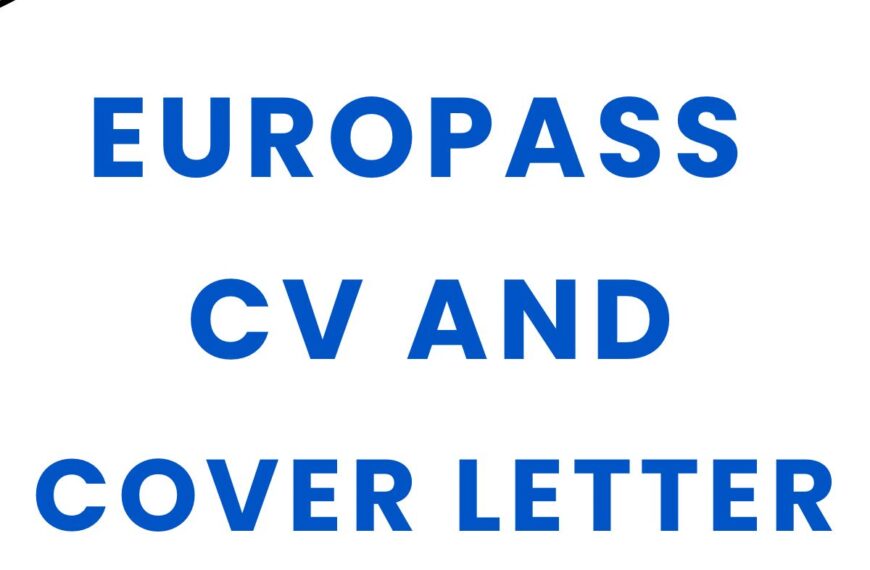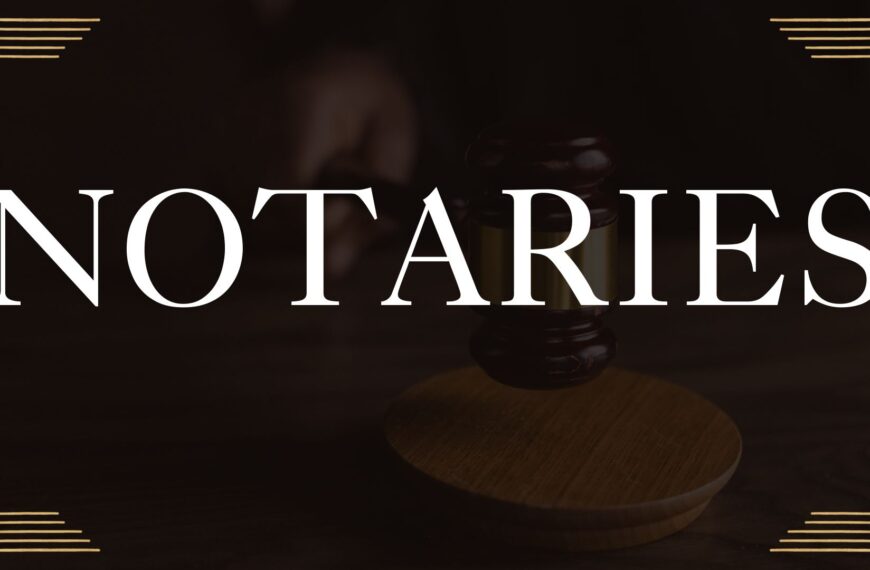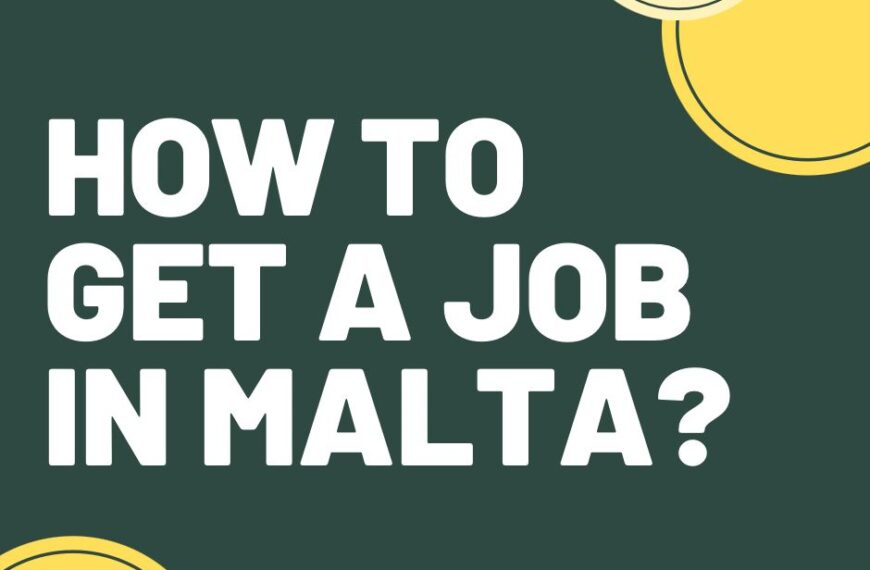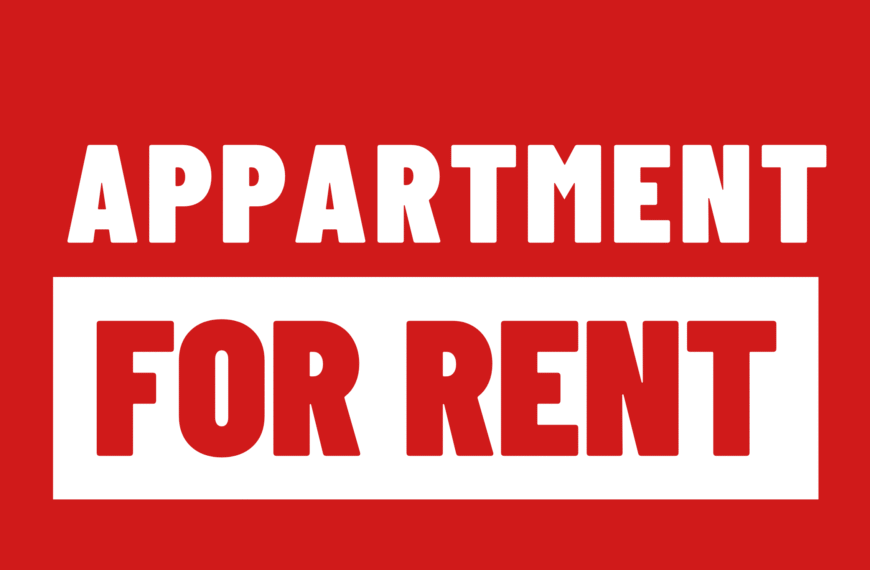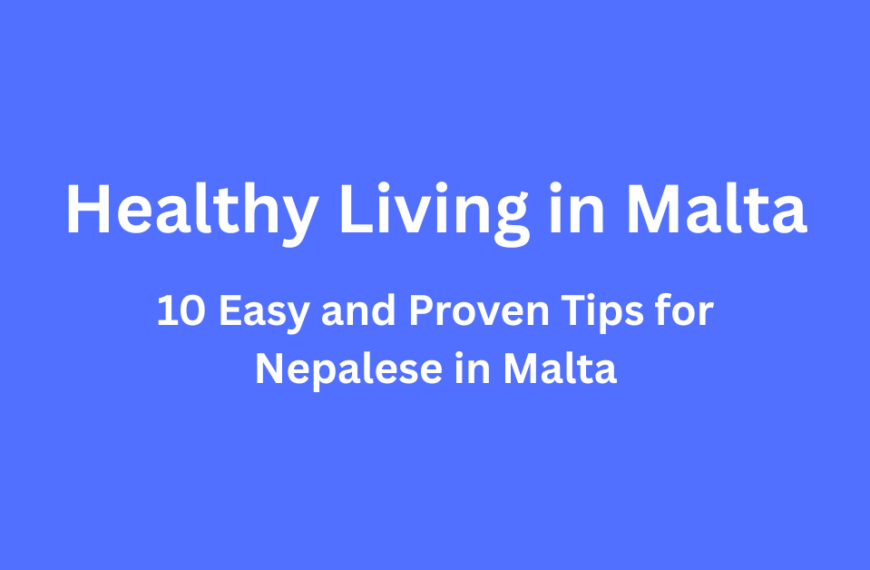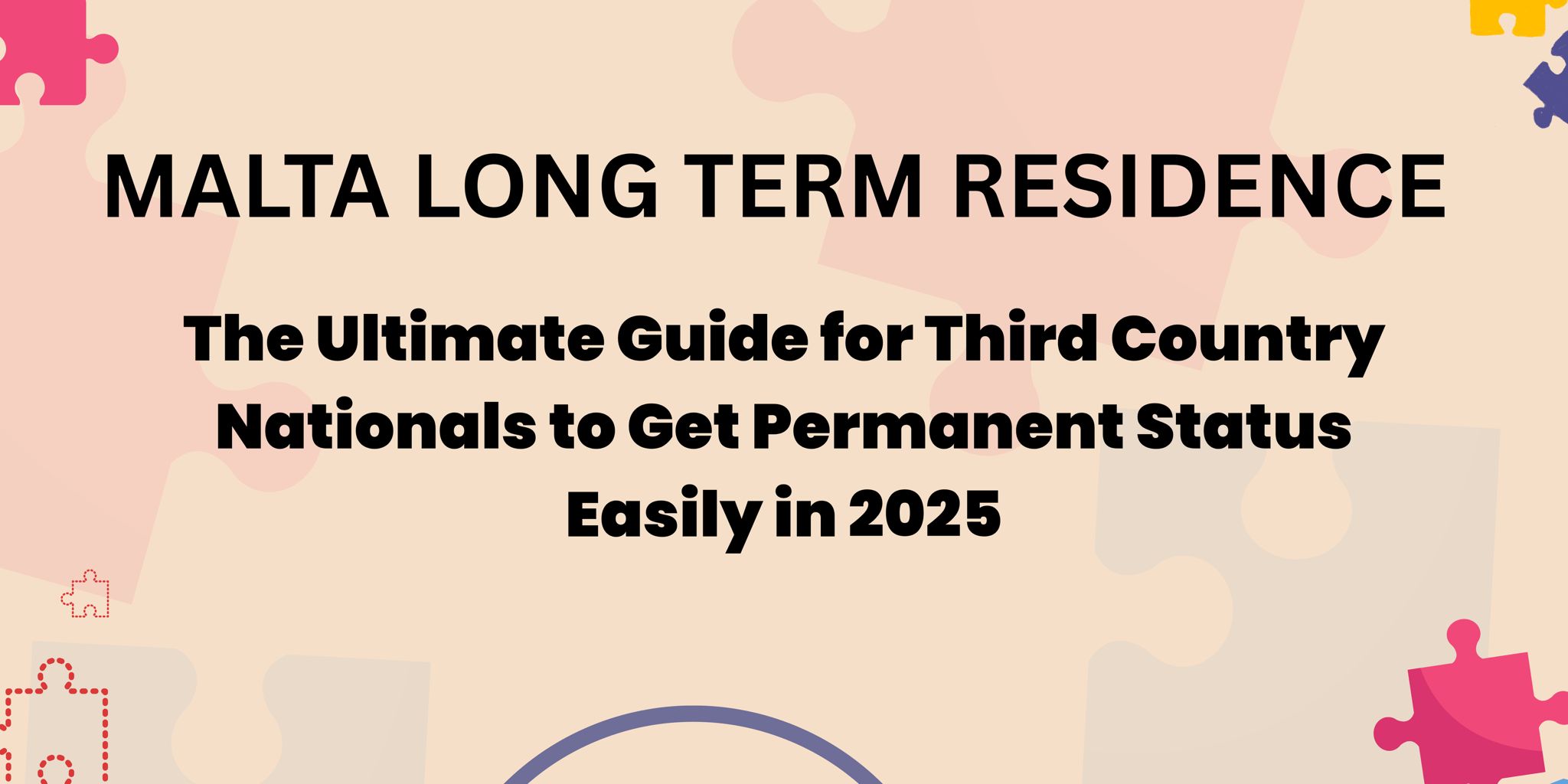
Are you a Third Country National living and working in Malta for many years?
If yes, you might be thinking about Malta Long Term Residence — the step that gives you a more secure future here.
In this guide, we’ll explain what it means, who can apply, how to apply, and why it’s worth it.
Part 1: The Foundation for Malta Long Term Residence -What Makes You Eligible?
The Long Term Residence status is a big deal, and because of that, the government has set clear, firm rules. Meeting these rules is like building the solid foundation of a new house. If the foundation is weak, the house won’t stand.
1. The Five-Year Test: Proving Continuous Residence
The most fundamental requirement for malta long term residence is time. You must prove that you have been living legally and continuously in Malta for five full years immediately before the date you submit your LTR application.
What Does “Legally and Continuously” Mean?
- Legally: You must have had a valid residence permit (like a work permit, self-employed permit, or family reunification permit) for the entire five-year period. Time spent on a tourist visa or waiting for an initial decision usually doesn’t count.
- Continuously: This is where people often get stuck. “Continuous” doesn’t mean you can never leave Malta, but it does mean you can’t be away for too long.
- The Big Rule (Total Absence): Over the entire five-year period, your total time spent outside of Malta must not be more than ten months. Every trip you took—whether a weekend away or a two-week holiday—counts toward this ten-month limit.
- The Single Trip Rule: You cannot be absent from Malta for more than six consecutive months (six months in a row) at any one time. If you leave for seven months, your five-year clock essentially resets, and you become ineligible.
How to Prepare for the Five-Year Test:
You need to gather proof for every month of the last five years.
- Previous Residence Cards: Keep all your old residence cards, even the expired ones. They prove your legal status.
- Passport Stamps: You must list every single date you entered and left the Schengen area (which Malta is a part of). The government will cross-reference this list with the stamps in your passport.
- A Detailed Chronology: Create a simple document that lists, month by month, where you were. Example:
- January 2021: Lived in St. Julian’s (Working Permit Holder)
- July 2022: Absent (Holiday in Turkey, 14 days)
2. Financial Security: Showing You Can Support Yourself
The Maltese government wants to be sure that granting you permanent status won’t lead to you needing government help. Therefore, you must show you are financially stable.
The Stability Requirement (The 2-Year Rule):
- You must provide evidence that you have had stable and regular resources for a continuous period of two years right before you apply. This means you can’t have a huge bank balance just for one day; you need steady income for the last 24 months.
The Sufficiency Requirement (The Minimum Income):
- Your income must be enough to maintain you and your family without using the social assistance system (like welfare benefits).
- The Calculation: Your income must be at least the National Minimum Wage in Malta, plus an extra 20% of the minimum wage for each family member (spouse, dependent children) who lives with you and relies on your income.
- For a single person, the minimum wage is enough.
- For a family of three (you, spouse, one child), you need the minimum wage plus 20% for the spouse, and another 20% for the child (Minimum Wage + 40%).
What Documents Prove Your Income?
- For Employees: Payslips for the last two years, FS3 forms (the annual summary of your wages and tax paid), and detailed bank statements showing the salary being deposited regularly.
- For Self-Employed: Detailed financial accounts, business returns, and tax declarations from the last two years.
- Tax Compliance: You must show proof that you have fulfilled all your tax duties by providing tax returns and receipts.
3. Integration: Showing You are Part of the Community
This is a modern requirement that shows you haven’t just been living in Malta, but that you have been integrating into Maltese society.
- The ‘I-Belong’ Programme: You must complete the government’s official Integration Courses.
- What You Learn: These courses cover two main areas:
- The history, culture, values, and democratic workings of Malta.
- Basic proficiency in the Maltese language (or sometimes English, depending on your situation).
- The Certificate: You must attend the required number of hours (usually around 100) and pass the final examination. You must include the official certificate with your application. Without it, your application will be rejected. It shows you’ve made a real effort to connect with your new home.
4. Other Key Requirements
- Accommodation: You must show you have a stable and suitable place to live for your family size. You need to provide a copy of your registered rental contract (which must be valid for at least one year) or your property purchase contract (deed).
- Health Insurance: You and all your dependent family members must have adequate sickness insurance that covers you for all risks normally covered for Maltese nationals.
- Clean Conduct: You must provide a Police Conduct Certificate issued by the Maltese Police. This proves you have no serious criminal convictions.
Part 2: The Action – The Application Process, Step-by-Step
Once you are sure you meet all the eligibility criteria above, it’s time to move on to the actual application. The entire process is managed by the Identità Malta Agency, specifically the Expatriates Unit.
Step 1: The Pre-Application Checklist (Your Homework)
Before you even touch the application form, gather and organize everything. This is a huge package of documents. Use plastic sleeves or a binder to keep it all in order.
- Financial File: All 24 months of payslips/statements, two years of tax returns, and your official employment letters.
- Residence File: Passport copies (all pages with stamps!), all old and current residence cards, and the detailed list of dates you were outside the Schengen area.
- Integration File: Your ‘I-Belong’ course attendance and pass certificate.
- Personal File: Housing contract, health insurance policy, and Police Conduct Certificate.
Pro-Tip on Translations: If any original documents (like birth or marriage certificates) are not in English or Maltese, they must be officially translated and certified by a sworn translator.
Step 2: Starting the Application (The Portal)
The process usually begins online through the Identità Expatriates Unit Portal.
- Request Access: You will typically start by requesting access or logging in to the portal where you manage your current residence permit.
- Select LTR: You will find the section for Long Term Residence application for TCNs.
- Fill the Form: You must complete the form fully, paying close attention to the sections asking for your financial information and travel history. Honesty is key here.
Step 3: Submission and Fees
After filling out the form, you must finalize the application submission.
- The Full Submission: Even if the form is started online, you will often be required to submit a physical copy of the application form and all supporting documents (the bulky file you prepared) to the Identità office in Valletta or Msida.
- The Fee: You must pay the application fee. This fee is non-refundable, meaning you don’t get the money back if your application is rejected. The fee for the LTR status is currently around €500, but please remember this amount can change without much notice, so always confirm the latest fee on the official Identità website before you pay.
Step 4: The Waiting Game (Processing Time)
Once your application is submitted and the fee is paid, the waiting begins.
- Processing: Identità staff will carefully review every single document and cross-check your travel history, tax records, and legal residence dates. They may contact your employer or landlord.
- The Time Limit: Maltese law states that the authorities should give you a written notification of their decision within six months from the date they accepted your application as complete. While they often stick close to this deadline, government processing times can sometimes vary.
Step 5: The Decision and Renewal
- Approval: If your application is approved, congratulations! You will be called to the Identità office to provide fingerprints and have your photo taken for the new residence card. This card confirms your LTR status and is issued for five years.
- Renewal: Since the status is permanent, you only renew the card every five years, not the status itself. For renewal, you mostly need to prove you still live in Malta, haven’t been away for too long (the absence rules change slightly after you get LTR), and still have valid health insurance.
Part 3: The Reward – What Long Term Residence Means for Your Life
Receiving your LTR card is more than just getting a piece of plastic; it fundamentally changes your life in Malta for the better. This status grants you a set of rights that are very close to those enjoyed by Maltese citizens.
1. Permanent Stability and Freedom from Permit Stress
- Peace of Mind: You no longer need to worry about your permit expiring every one or two years. The stress of gathering all your documents for annual renewal is gone.
- Security: Your residence is permanent. You can only lose this status if you commit a serious crime or are absent from the EU for a very long period (usually two consecutive years).
2. Unlimited Work and Career Opportunities
- No More Employer Bind: This is a major benefit. As a temporary resident, your permit is usually tied to a specific employer (a Single Permit). If you want to change jobs, you must apply for a brand new permit, which is a stressful, lengthy process.
- Work Mobility: As an LTR holder, you are free to change jobs, start your own company, or switch careers without needing a new permit or work authorization from Jobsplus. You have the same right to work as a Maltese citizen.
3. Access to All Public Services
Your LTR status gives you equal access to services, which means you and your family can enjoy:
- Education: Equal access to public schools and universities at the same costs as Maltese and EU citizens.
- Social Services: Access to certain social benefits and assistance, should you ever need them (though your income must be stable to keep the LTR status).
- Healthcare: Full access to the Maltese national healthcare system.
4. Family Reunification is Simpler
- Easier Sponsorship: Once you have LTR, it becomes much easier to bring close family members (like your spouse and minor children) to live with you in Malta. The application process for their permits is often smoother and faster.
- Family Rights: Once your family members join you, they too can benefit from simplified access to the job market and education system.
5. Schengen Travel Rights
- Visa-Free Travel: Your Maltese LTR card allows you to travel across the entire Schengen Area (most of Europe) for short visits (up to 90 days in any 180-day period) without needing a visa for those other countries.
6. A Clear Path to Citizenship
- The Next Level: Long-Term Residence is a mandatory stop on the road to becoming a Maltese citizen. After holding LTR status for a total duration of 17 years, you become eligible to apply for Maltese citizenship by naturalisation. Getting Maltese citizenship means getting a Maltese/EU passport, which offers global travel freedom and the right to live anywhere in the EU.
IMPORTANT DISCLAIMER
Please Read Carefully
The information provided in this article is meant only for general information and is not legal or professional advice.
Immigration laws, government fees (like the current €500 LTR application fee), and the required procedures in Malta are set by law and can change at any time without advance notice. We have tried to be as detailed and accurate as possible, but we cannot guarantee that this information is complete or perfectly up-to-date at the moment you are reading it.
- Do Not Rely Solely on This Guide: You should not make any major life or financial decisions based only on the content of this article.
- Always Check Official Sources: For the most accurate, current forms and fees, always consult the official Identità Malta (Expatriates Unit) website.
- Seek Expert Help: For guidance specific to your personal situation, or if you have a complicated travel history, we strongly advise you to speak with a qualified immigration lawyer or a registered authorized mandatory in Malta before submitting your application.
We are not responsible for any loss, damage, or legal issues that may result from relying on the information here. You use this information entirely at your own risk.

